Syrian rebel group Jaish al-Islam has agreed to evacuate jihadist fighters being held in its prisons in besieged Eastern Ghouta, a statement says.
The group says the decision was made in consultation with a delegation that entered with a UN aid convoy.
The Syrian government has stepped up efforts in retake the rebel-held enclave in recent weeks, leading to more than 900 reported civilian deaths.
Pro-government forces have now reportedly taken half the area.
Some 400,000 people are trapped and efforts to reach a deal to halt the bloodshed have gone on for weeks.
Jaish al-Islam said it had come to an agreement with a variety of parties, including the UN, to evacuate the fighters from Hayat Tahrir al-Sham (HTS) - an alliance of factions led by the Nusra Front, which sprung from al-Qaeda.
The extreme jihadist militants are excluded from the yet-to-be-implemented UN ceasefire and their presence provided a justification for the government bombardment of the area.
They are expected to travel to Idlib, which has been the destination for fighters under previous agreements - most notably when the Syrian government retook Eastern Aleppo.
However correspondents say the Russian-backed offensive is likely to continue despite the fighters' removal.
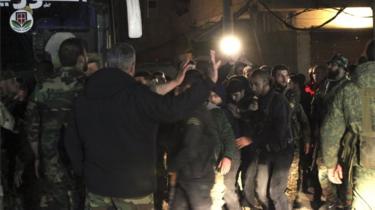 EPA
EPAWho are the rebel groups?
The rebels in Eastern Ghouta are not one cohesive group. They encompass multiple factions, including jihadists, and in-fighting between them has led to past losses of ground to the Syrian government.
The two largest groups are Jaish al-Islam and its rival Faylaq al-Rahman. The latter has in the past fought alongside HTS.
Eastern Ghouta is so close to Damascus that it is possible for rebels to fire mortars into the heart of the capital, which has led to scores of civilian deaths.
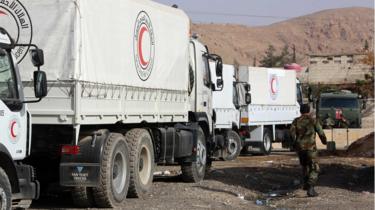 GETTY IMAGES
GETTY IMAGES
The Syrian government is desperate to regain the territory, and has said its attempts to recapture the Eastern Ghouta are directly due to the HTS presence there. HTS was excluded from a ceasefire agreed at the UN that has yet to come into effect.
What is the situation in Eastern Ghouta?
The enclave has been beyond government control since 2012, but in recent weeks its efforts to retake the territory have markedly intensified.
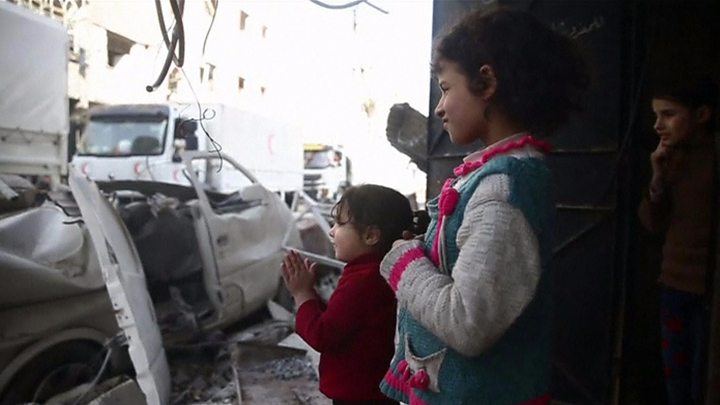
An estimated 950 civilians have been killed in the Eastern Ghouta region since the Russian-backed government assault was launched on 18 February, according to the UK-based Syrian Observatory for Human Rights (SOHR) monitoring group, which has a network of sources on the ground. Many of the victims are children.
On Friday a UN convoy was able to successfully deliver aid to the area, after previous deliveries were halted by shelling.
Hundreds of thousands of residents are still thought to live in the Eastern Ghouta, seven years into the civil war.
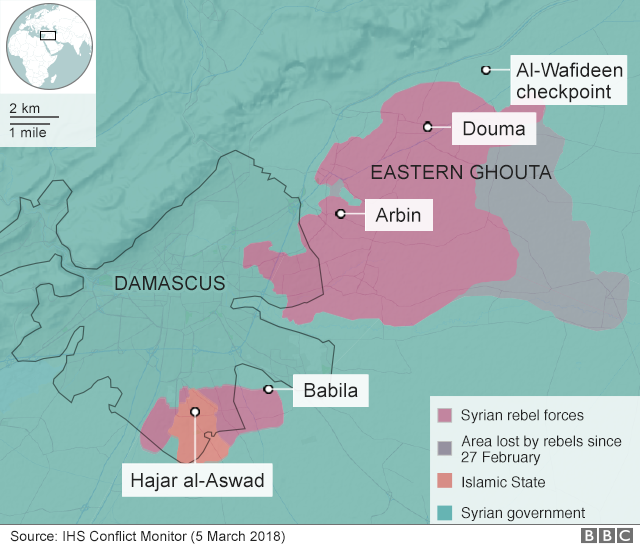
Turkish push against Syrian Kurds 'imminent'
Further north in Syria, Turkish President Recep Tayyip Erdogan has said the Turkish army and its Free Syrian Army allies could enter the town of Afrin "at any moment" and are surrounding its centre.
Their forces have been pressing an assault against the Kurdish-held enclave since January 20. They have already taken control of the nearby town of Jinderes, a few kilometres from Afrin, Turkish reports say. Kurdish fighters insist the Turkish military has not yet besieged Afrin.
Rights group Amnesty International says that scores of civilians have been killed in the area by indiscriminate shellfire since the assault began.
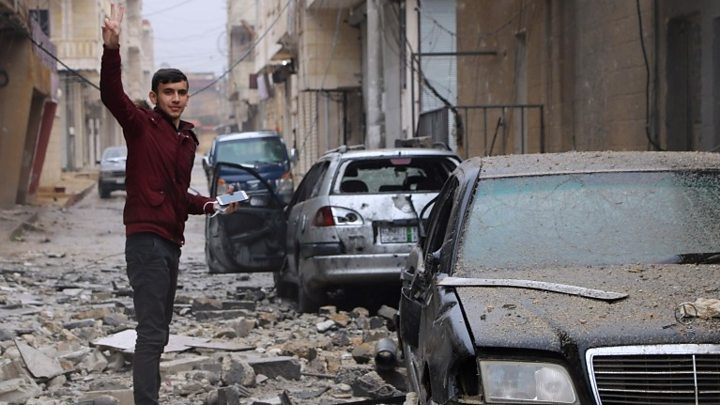
The Turkish government has entered the area because it says the Kurdish militia holding the territory - the People's Protection Units (YPG) - are an extension of the banned Kurdistan Workers' Party (PKK), which has fought for Kurdish autonomy in south-eastern Turkey for three decades.
The YPG denies any direct organisational links to the PKK - an assertion backed by the US, which has provided the militia and allied Arab fighters with weapons and air support to help them battle the jihadist group Islamic State (IS).
No comments:
Post a Comment